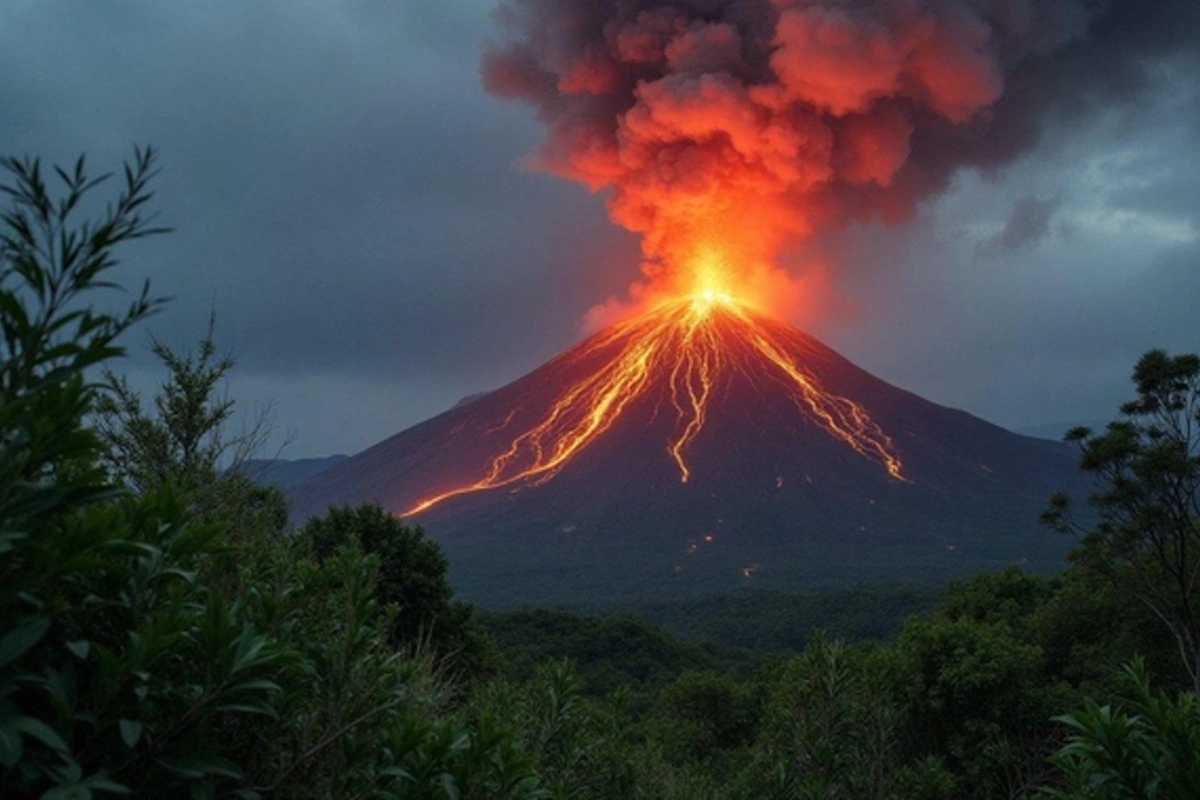04 Jun , 14:23
0

Can volcanoes defeat life on the planet: a hot threat or part of the natural balance?
Majestic and terrifying volcanoes have always evoked awe and reverence in humanity. At the mere mention of this word, imagination paints an impressive picture: molten lava, ash-covered sky, deafening rumble, and general panic. Nature demonstrates its unbridled power and independence. Indeed, volcanoes possess colossal strength capable of transforming entire continents. But a question arises: could they ever become the cause of the extinction of all living things on Earth? Or is reality not so catastrophic?
Let's figure it out.
What exactly is a volcano and why does it erupt?
Volcanoes are natural "holes" in the Earth's crust through which magma, gases, and ash escape to the surface. All of this is located in the depths of our planet, where it's incredibly hot and pressure constantly increases. When it becomes too strong, an eruption occurs.
Some volcanoes "slumber" for hundreds of years, others erupt regularly. And although eruptions can be destructive, volcanic activity itself is part of Earth's breathing. Without it, life might not have emerged at all.
Volcanic threat: is it really scary?
Yes and no. Here's why
What can actually happen:
Local catastrophes. Eruptions can destroy cities, take lives, poison air and water, cause earthquakes and tsunamis. This is a fact, especially in areas where people live near active volcanoes.
Climate change. Some volcanoes emit so much ash and gases (especially sulfur dioxide) that they can block sunlight and cause temporary cooling on the planet. An example is the eruption of Mount Tambora in 1815: the following year was called "the year without a summer."
Megavolcanoes. These are the most dangerous players. They erupt extremely rarely, but on a massive scale. The Yellowstone supervolcano in the USA is one of these. If it awakens, ash could cover half a continent, and the global climate would change for years.
But can volcanoes destroy all life?
Completely - almost certainly not. Here's why:
Life is very resilient. Scientists find microorganisms even in the crater of a volcano or near hot springs. They know how to survive in conditions where it seems impossible to live.
Earth is huge and diverse. Even if one supervolcano causes a catastrophe in one hemisphere, life in the other can continue, adapt, and eventually recover.
Humanity already knows a lot. Satellites, scientific centers, warnings, emergency services - all this helps us learn about possible dangers in advance and prepare.
A volcano is not only a threat but also a source of life
Yes, it sounds paradoxical. But it was volcanoes that once created the soil on which forests and fields later grew. They form new islands, help minerals reach the surface, and enrich nature with new elements. Without them, there wouldn't be rich soils in Italy or Japan. And, possibly, we wouldn't exist.
What should people do?
Study and observe. Scientists around the world monitor volcanic activity and model scenarios for future eruptions. This helps prepare in advance.
Respect nature. Don't ignore warnings or build houses at the foot of active volcanoes.
Stay realistic. A volcano is a powerful phenomenon, but not the apocalypse. Life is stronger. And as history has shown, even after the most destructive eruptions - nature recovered.